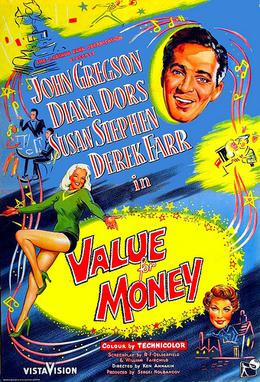This is all totally irrelevant to anyone, anywhere, ever, but I thought I'd take the chance to document some stuff now I've finished another book and have a little time before I can face editing it.
My first completed novel was a rather silly affair called
Space, which I reckon I started back in 2001, but probably only really started in the spring of 2002. The oldest archive files I can find for the book only date back to 2003.
The oldest book files I have are actually a backup of an unfinished novel called
Booze - those date back to September 2001, so I must have started
Booze then put it to one side to work on the the less controversial
Space.
When I'd finished
Space and shopped it to agents, being rewarded with a remarkable tally of rejections (by the time I gave up, I had over a hundred), I started back on
Booze, a rather scurrilous tale about a Kuwaiti buying a monastery that holds the recipe to an aqua vitae that tastes like angels' tears and is as addictive as crack cocaine. I began to get messages back from agents that said things like 'Humour doesn't sell dear boy' and so the work in progress that was
Booze got shelved and, indeed, lies gathering dust even now.
I'll finish it one of these days, it was great fun. Let us remember that I still think
Space is funny - it made me laugh enough, re-reading it after all these years, to put it up on Amazon for sale at a princely £0.99. Its first review on Amazon pointed out that "
...it just isn't very funny."
So I wandered off and decided to write a serious book. The result,
Olives - A Violent Romance, was originally written in September 2004, pre-dating - I always thought rather presciently - the 2005 Amman bombing by a year. However, the bombing in the original manuscript was a dream sequence.
The original MS starts...
The first day of my new life started out in the dark, dreary sodium wetness of Heathrow Airport and ended in a cell. Let’s just say things didn’t go according to plan. Now, months later and looking back to the start of my time in Jordan, I wonder that I stayed there at all. Part of me bitterly regrets not leaving the second I was released. But there’s a tiny glimmer of hope in me that won’t go away, although now I’ve run out of choices and the consequences of my actions are written in the wreckage around me.
And was considerably improved by the large amounts of editing and rewriting that went on between then and 2011 when it was finally published. Most of these took place post-2007, when I discovered Harper Collins' Authonomy and met other writers who taught me how to write better books, principally Australian Italian novelist
Phillippa Fioretti. Other than that, the whole Authonomy experience was, as I have documented extensively in earlier blog posts, pretty pants.
Beirut - An Explosive Thriller was started in Autumn 2009 after the 'reader' for an agent called Eve White, who had requested a 'full read' of
Olives had finally responded that it was all 'A bit too low key' for them. I was in a fury. The book's crammed with spies and bombs and shit and it's too low key?
That was it. The final straw. I was going to write a
mad book and it was going to be based in Beirut. The first versions of
Olives had Paul moving to Beirut, looked after by Gerald Lynch (who at that time was called Nigel Soames, a character who nagged at me because he wasn't 'working'), who felt guilty at the way things had panned out for the feckless young journalist. Beirut just made all sorts of sense as a location. I chucked Prague, Hamburg, Spain, Malta and the Greek Islands into the soup mixture just to be sure.
Work on
Beirut - An Explosive Thriller actually started with 'The Muezzin Cried', a short story
I posted here on the blog, derived, as usual, from a dream memory.
By December 2009 I had realised I was actually going to have to go back to Beirut if I was going to pull this one off. I had been travelling there since the '90s, but hadn't been back in a few years. I needed to refresh my memories and impressions of that sexiest of Eastern Mediterranean cities.
At the time, I had been involved in running a social un-event for online people in Dubai called GeekFest. I called a friend in Lebanon, Alex Tohme, and asked her if she'd be up for running GeekFest Beirut? Of course, she was totally up for it. And so I had my ticket to Beirut sorted!
On the 6th February 2009 GeekFest Beirut took place and I spent a few halcyon days striding around the city often in the company of old friend and partner in crime Eman Hussein. Thanks to GeekFest, I had 'my' city in the 'can'. I went back again for ArabNet with colleague and friend Maha Mahdy, discovering Barometre in the process thanks to geek and blogger Roba Al Assi. And again for GeekFest 3.0. And again, and again. The gorgeous Paul Mouawad Museum, the model for Michel Freij's own private museum, I discovered for myself.
It was with Maha that I went in search of Shemlan, the village nestled high in the Chouf that was home to the 'British Spy School' MECAS - The Middle East Centre for Arab Studies. I was to go back time and again, with the lovely Micheline Hazou and then also with friends Eman and Sara Refai. This village and an
inspirational gentleman called Barry were to combine in the person of one Jason Hartmoor, the anti-hero of
Shemlan - A Deadly Tragedy.
Work on
Shemlan actually started back in 2011 but was postponed because I decided to self-publish
Olives and that took 110% of my time, back in November 2011.
Beirut followed in September 2012.
By early 2013 - having visited Estonia, the location of the book's finale - I restarted work on
Shemlan and it went like a rocket. I raced to the mad, climactic and rather unusual end of the book, propelled by death metal and much musical mayhem. I sent it off to my agent and when he responded, weeks later, that he wasn't even going to try shopping it to publishers, I terminated our relationship.
Boy, did that feel good.
Shemlan was published on 1 November 2013. I didn't publish a book in 2014, I spent the year wrestling with
A Simple Irish Farmer and quite a lot of existential self publishing angst.
Olives and
Beirut have sold quite well, but
Shemlan - easily the best of the three books - was plagued by the fact I didn't do a UAE print run and was too exhausted by the whole farrago of promotion to actually get out there and market the thing.
Shemlan has been terribly - and unfairly - neglected as a consequence.
Seriously. I can't even look at a book blog now. If I see the words, 'I love books and...' one more time, I'll burn the puppy. Big brown eyes or no big brown eyes...
I've written a screenplay for
Olives since. I just don't know what to do with that, so it's in a desk drawer. It was fun to do!
So here I am, fifteen years into my journey as a writer of books. I have one more book now finished, being steadily rejected by a number of agents. That's taken, as I have documented earlier, a year to write. And I have another new book to edit now, which took about a month to write. If traditional publishing turns both books down, as I confidently predict they will, I shall self publish them in September this year (A Simple Irish Farmer) and March next year (the newnew book) to coincide with the Emirates Airline Festival of Literature.
And after that, I reckon, I'll be hanging up my literary shoes...




![some old books i found in the guest room. =]](http://upload.wikimedia.org/wikipedia/commons/thumb/f/fb/Old_book_-_Timeless_Books.jpg/200px-Old_book_-_Timeless_Books.jpg)






